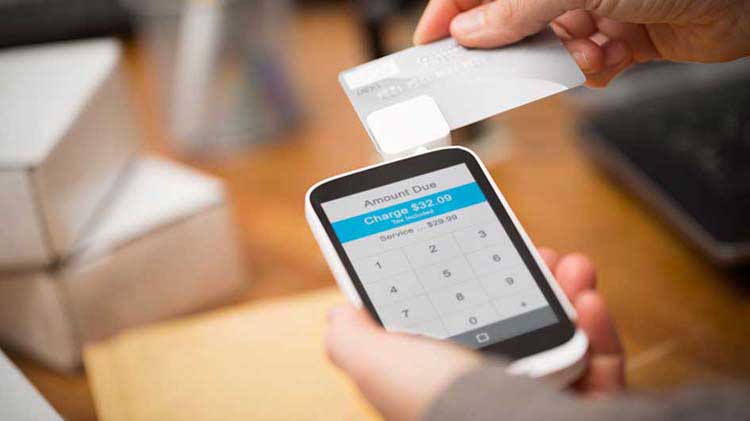Promote your small business and build your brand
Here are some tips to help you take charge of your success by shifting your mindset, building your brand and tying together capabilities and goals.
How to promote your business
Found your passion? Check. Your business is taking off? Double check. Time to coast? Nope. Definitely not.
If you find yourself expecting someone else to make big moves for you, it's time to check in with your motivating force and reevaluate your mindset. There's such a thing as falling victim to your own success.
Don't wait for success to find you. Instead, be proactive and look for ways to promote your own success. Ask for help. Lean on others for support. Others can help you, but it's up to you to put in the hard work.
Remember this: Nobody cares about your success more than you.
How to market your business on a budget
Consider targeted email campaigns
Email marketing can be an effective method for maintaining communication with your customer base, sending reminders, promoting sales and providing coupons and savings. There are multiple ways to collect customer email addresses, such as using sign-up sheets or cards at your physical store or opt-in forms on your business website. To help expedite the growth of your email list, it can be beneficial to offer incentives, such as discounts on future purchases, in exchange for customers' email addresses. To streamline your email campaigns and ensure a professional appearance, you may want to consider utilizing email marketing software.
Build your brand on social media
In addition to having a website for your business, social media platforms are typically the initial destination for potential customers seeking information about your company. Creating accounts on popular platforms such as Instagram, X, Facebook, LinkedIn, YouTube and TikTok is generally free of charge.
Utilizing social media as a promotional tool allows you to showcase the products or services your business offers, while also providing a glimpse into your company culture. By curating thoughtful social media profiles that include well-crafted product images, engaging and informative Instagram stories and active conversations on Facebook, you can help enhance the image of your business.
Engage with your community through meaningful events
Hosting events provides an excellent opportunity to connect with your community, engage with customers face-to-face and creatively promote your business. When planning events, consider the needs of your customer base to drive foot traffic. For example, if your customers primarily work 9-to-5 jobs, avoid scheduling events during working hours to help ensure a higher turnout. Similarly, if your business caters to families, plan events on weekends to accommodate customers who can bring their children along.
Participate in affiliate marketing
If you're interested in expanding the reach of your product through product reviews and attracting a larger audience, you may want to explore the option of establishing an affiliate program. Affiliate marketing provides an incentive for individuals to generate traffic to your business by offering them a commission for every successful sale, akin to referral programs.
Remember this: How can you best market to those around you? Meet them where they’re at, without spending too much money.
How to build your brand
You may recognize companies by their taglines and logos and sing along to the jingle when the commercial plays. But that's after hundreds (probably thousands) of hours of head scratching and research. Brands don't start and stop with their first ideation of a cool logo.
Think of your favorite brand. Why do you like it? Probably because it has more than a cool factor. Your brand should reflect the core tenets of what you offer and resonate with those buying your product. Take some time to sit down and reflect on what your mission, purpose and company is. Then, start to establish your branding,
Remember this: How do the best brands get there? Research. It's the who, what and why of your business.
How do you pull it all together?
Expert advice
Ask for advice, ideally from someone with experience. These people know their stuff. And face-to-face, customized insight is better than a generic web search. Seek out those experts at meet-up groups or chat with local business owners.
Customer research
Establish who your product serves and a target audience. Find real people who will use your product and ask questions. How do they see your product? How would they use it? Why would they or wouldn't they use your product? These questions are vital to understanding your target audience and their unique needs.
Personal experience
You are your brand's pillar. Draw on what you've learned from past insights and experiences and explore how it can shape your business' future direction. Don't underestimate the power of introspection. Use your time to identify what you have learned previously and how you can develop strategies to further your business and brand.
Many know that putting a brand out there and crossing your fingers doesn't get attention. Brands are intentional, living things that are shaped by the world they live in. You're the one pushing and pulling it in the right direction.
Join an online community
To effectively promote your business, consider becoming a part of an online community that is specific to your industry. It is important to actively engage with fellow members by contributing to conversations and discussions. By posting insightful comments on relevant blogs and even offering to write guest posts, you can establish a strong reputation within your field. This not only expands your network but also enhances the credibility of both you and your business.
Remember this: The most important input comes from your ideal customer, experts and your own experience. Tap into their insights to help form your brand.
Tying together business capabilities and goals
Your business is more than dollar signs. It's your skill. It's the product that inspired you to take the leap into entrepreneurship. Its success depends on the systems and strategies you put in place. So as an entrepreneur, you're probably asking, "how do I set achievable and realistic business goals?" The answer is, connect your business goals directly to your business capabilities.
Business capabilities
More than just a wild idea, a capability is what your business does. A lasting and repeatable system or skill can help to achieve the same results over and over again. Capabilities don't include action items ― it's about defining what your business does.
Business goals
A goal is something you set out to accomplish within a specified period of time. Goals don't have to include specific actions to achieve the goal. It's more about the broader outcome. What do you want to accomplish?
Once your goal is defined, there's more than one way to meet it. By experimenting, you may come up with a sustainable, repeatable way to meet your goal and grow your business. Keep looking for ways to improve your pace toward meeting goals.
Goals can help keep all employees on the same track and provide a clear picture of what your company wants to achieve. They should also be measurable and help keep your company headed in the right direction.
Remember this: Regularly meeting your business goals relies on your business' well-defined, lasting capabilities.
Supporting your small business in other ways
Now that you have learned some tips on how to promote your business, there are other factors to consider in the success of your brand. You may be interested in reading articles on protecting your small business property from damage, retirement plans for small business owners and self-employed money management strategies.
If you have questions about insurance for your small business, you can reach out to a State Farm® agent.




